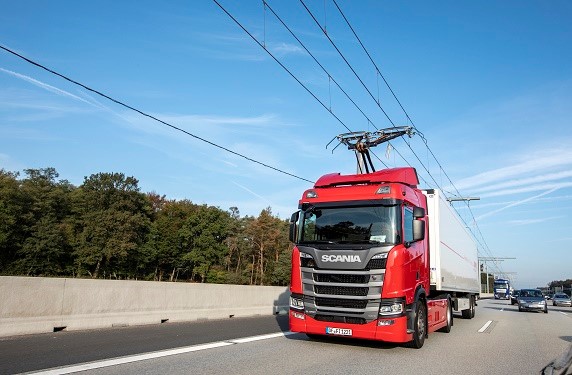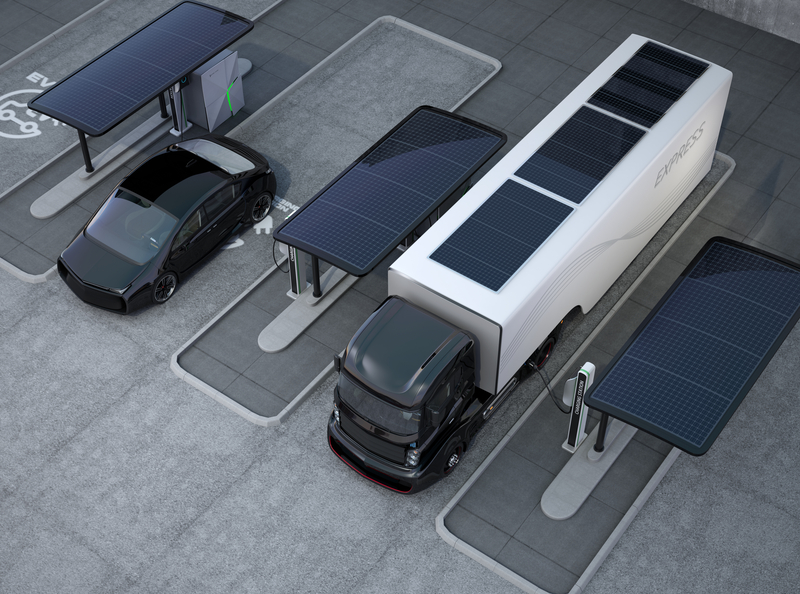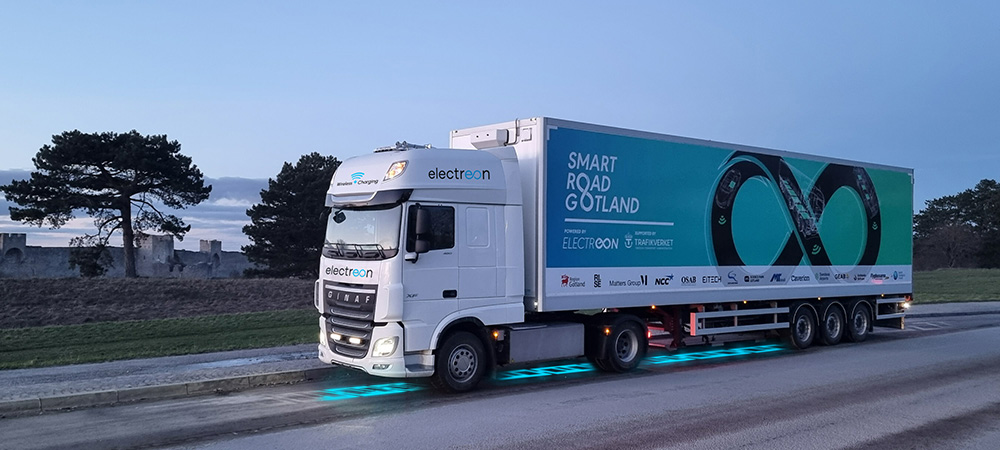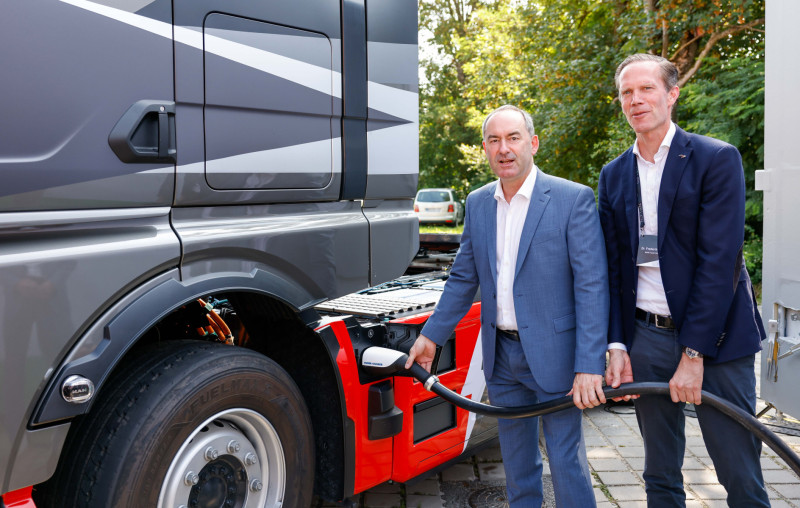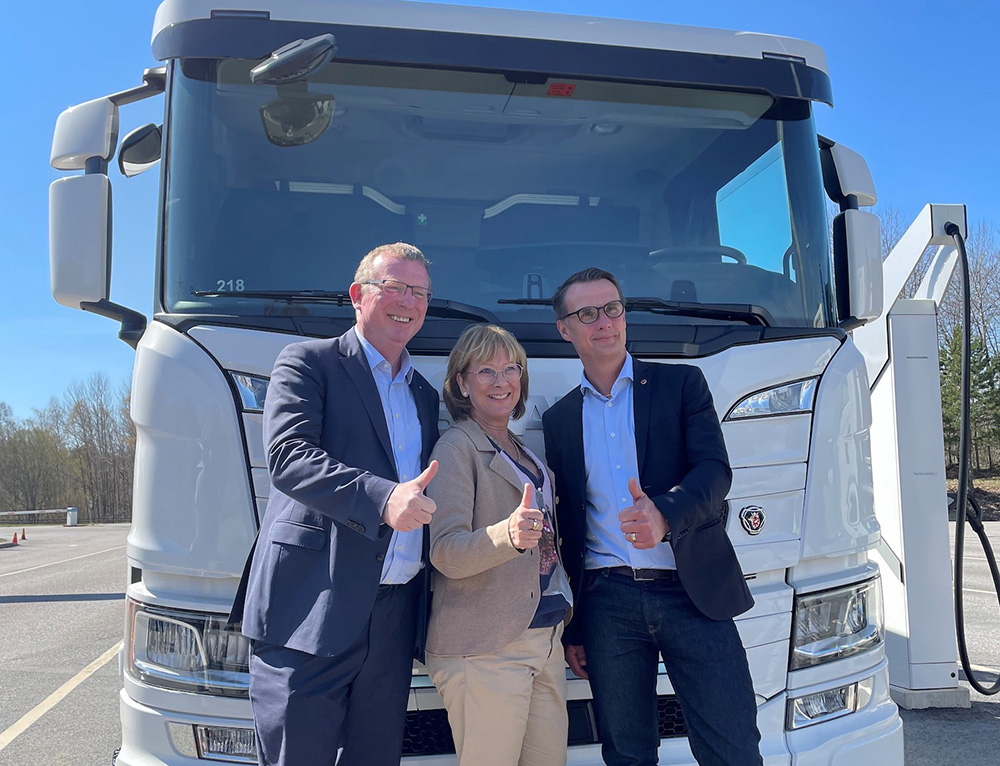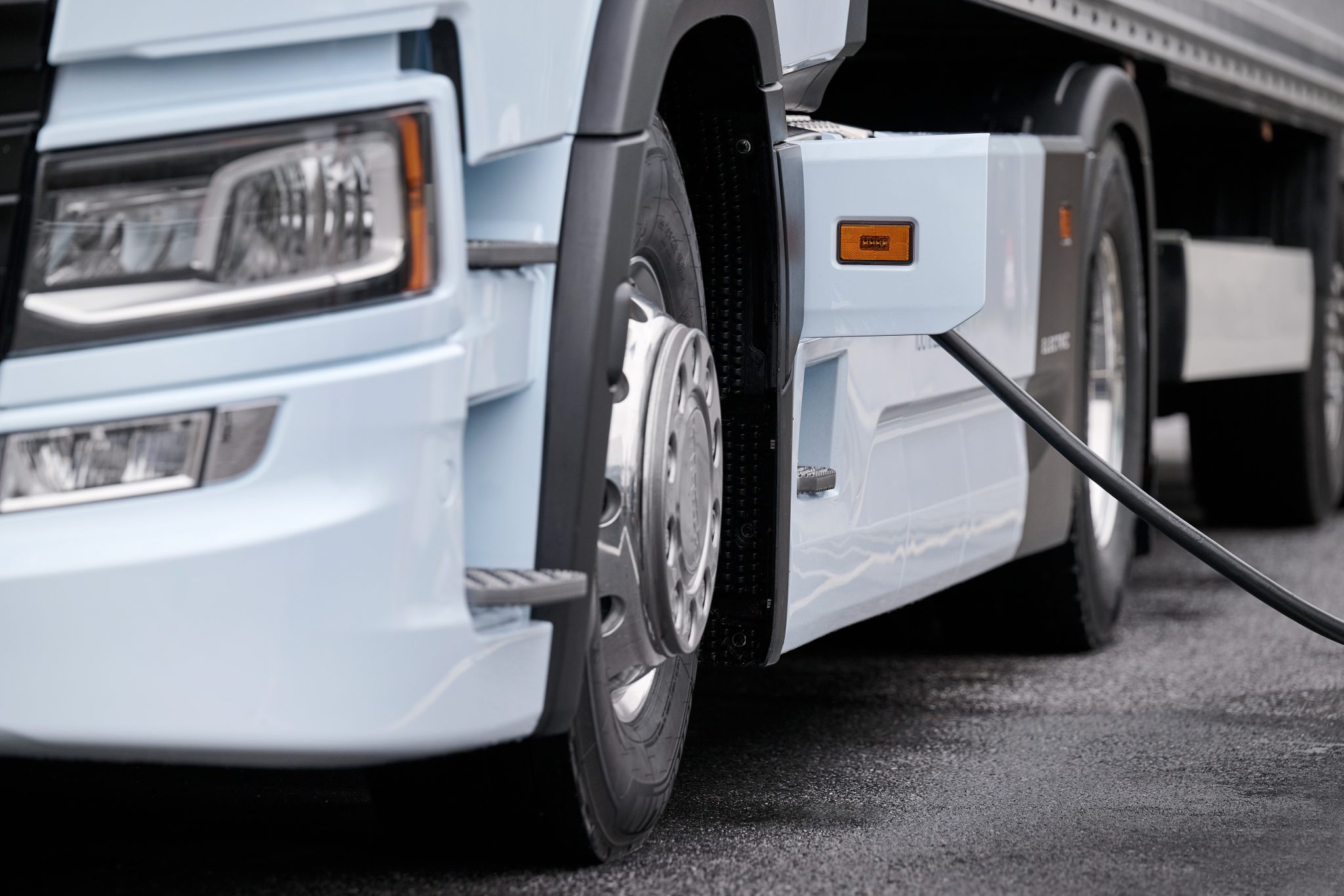
This new route, operated in partnership with Swedish private haulier Ahréns Åkeri, is expected to significantly reduce emissions, targeting a 97% reduction in well-to-wheel (WtW) CO₂ emissions. At the same time, the transport flow is optimized, with 85% of the vehicle’s annual mileage running at full capacity.
LOTS Group, a subsidiary of Scania, unites shippers to optimize logistics services. Scania’s control tower coordinates transport flows, while LOTS Group handles route optimization and charging management with digital tools to maximize resource efficiency. Together, they are developing electrified transport and providing sustainable, efficient solutions for greener and more cost-effective logistics.
The route will total 221,000km annually, saving 298 tons of CO₂e emissions. This is equivalent to the annual CO₂ emissions of 210 passenger cars in Sweden. In Europe, 60% of all road freight covers over 300 km per day, and this initiative demonstrates that even the more complex and extensive parts of the transport system can be electrified.
Johan Palmqvist, MD Europe at LOTS Group, commented: “This partnership is a significant step forward in the transition to sustainable logistics. By fostering collaboration among shippers, carriers, and charging partners, we not only reduce emissions but also maximize utilization, which is key to economically sustainable transport. Our goal is for this to set a benchmark for future logistics solutions in Europe.”
“This collaboration helps ensure energy-efficient and climate-smart transport for our customers, supporting our ambition to achieve net-zero climate impact throughout the value chain,” said Måns Isacsson, logistics manager at SKF Sweden.
The project aims to create recurring roundtrips with guaranteed volumes and high vehicle utilization, reducing financial risks associated with investments in green technology. By focusing on this efficiency, the project shows that sustainable logistics is not only environmentally friendly but also cost-effective. Implementation of BEV vehicles will occur in stages, with flow verification in early 2025 and full-scale operations planned later in the year.
Hampus Ahrén, operations manager at Ahréns Åkeri, added: “By ensuring full capacity in both directions and optimized charging, we see not only significant environmental benefits but also substantial operational efficiencies. Long-term contracts and stable volumes allow us to invest in green technology, making this partnership both sustainable and economically advantageous.”
The partnership will evaluate and optimize all operational parameters, including energy usage, electricity pricing models, and vehicle utilization, before transitioning to full two-shift operations in 2025.
Gustaf Sundell, head of Scania Ventures and new business, stated: “At Scania, we are excited to see how collaboration among leading industrial players paves the way for electric transport and a redefinition of the logistics system as a whole. The partnership between SKF, LOTS, and Scania demonstrates that freight transport with battery-electric vehicles is possible, not only for shorter urban routes but also for long-distance and heavy transport. This collaboration aligns with Scania’s purpose of driving the shift toward a sustainable transport system.”
Key highlights of the collaboration include:
- Recurring BEV Route: One of Europe’s longest BEV routes (221,000 km/year) reduces CO₂ emissions by 97%, with 85% of the vehicle’s annual mileage running at full capacity.
- Electrification of Long-Distance Transport: The project proves that BEV transport is feasible even for longer routes, with full operations planned for 2025.
- Efficient and Sustainable Logistics: Through route optimization and charging management, the initiative balances cost reduction with environmental gains, creating a sustainable model for future logistics.



